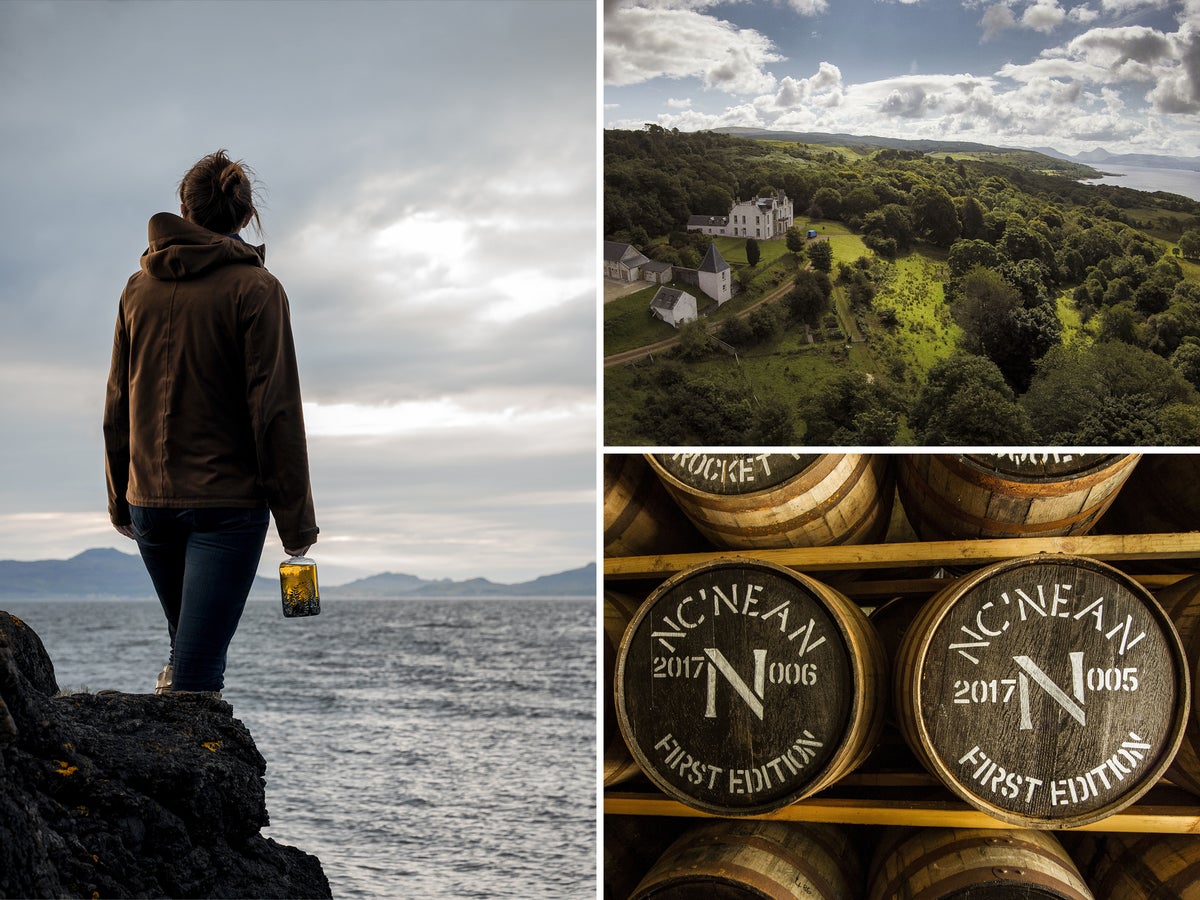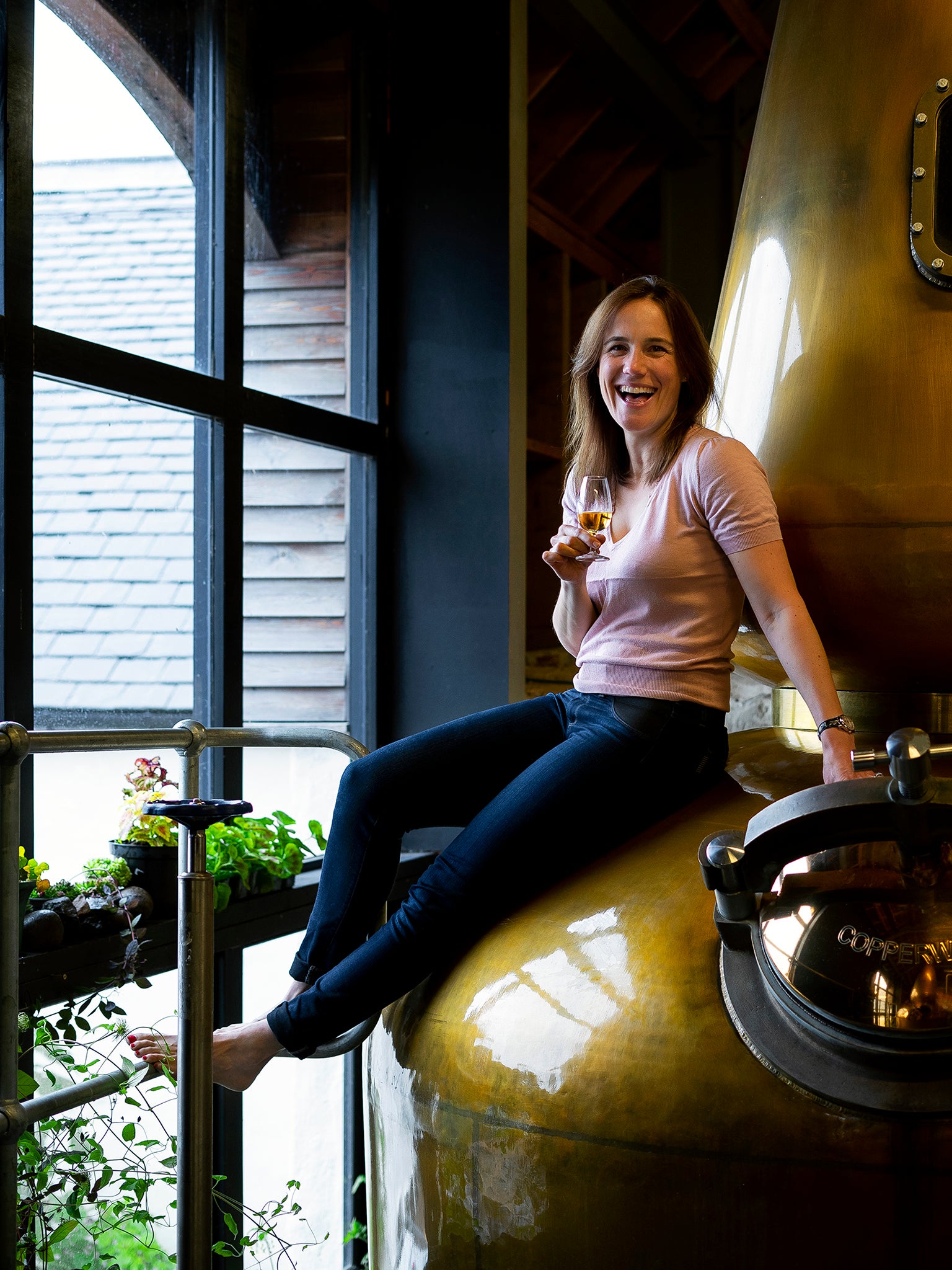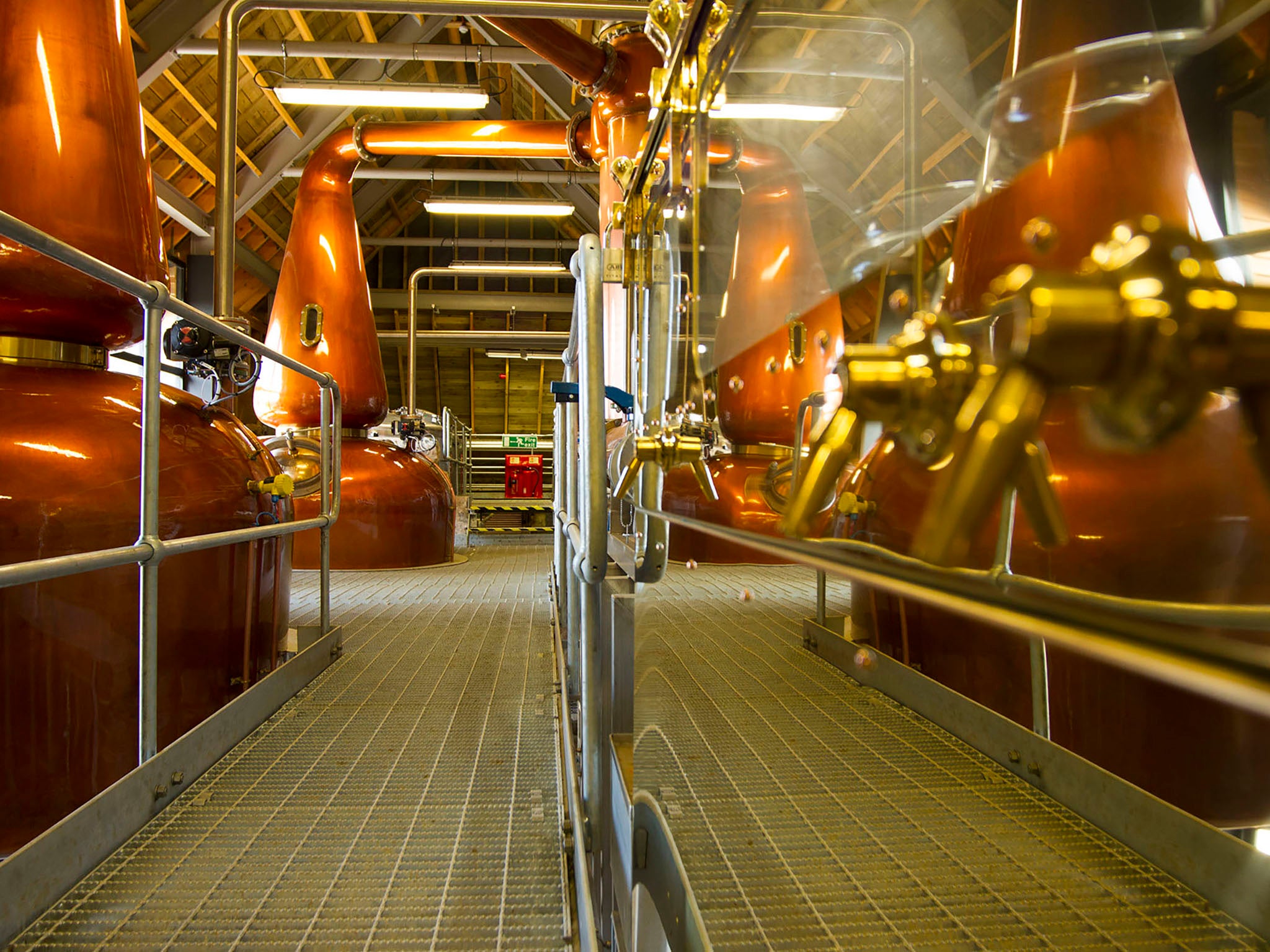
I have a confession to make: I don’t like whisky. I can’t drink it neat, which I’ve always thought of as the “proper” way to drink it. There’s also the idea that whisky is only for men; an idea perpetuated by my whisky-loving father and uncles. So why on earth am I in one of the most remote whisky distilleries in Scotland, all the way in the Morvern peninsula in the Highlands, having travelled nearly 14 hours to get here?
Nc’nean has a reputation for being one of the most remote distilleries in the land of whisky (AKA Scotland). If you’re not already in Scotland, you have to get yourself there first. Then you have to get yourself to the Highlands, which tacks on a few more hours. Then, you have to drive another hour plus to get to a tiny port and onto a tiny ferry that will charge you an extortionate £10 to take you two minutes across a loch. After that, it’s a nearly three-hour drive to get to the Drimnim estate, where the distillery is located. Whew.
I arrive on a windy, drizzly day, barely awake after spending a night on the Caledonian Sleeper. Our taxi driver Alastair Burns (I promised I would mention him – hello Alastair!) gave us quite the tour of the Highlands, but now it was time to bid him goodbye and say hello to Nc’nean. Founder Annabel Thomas comes out to greet me, and almost immediately we head on a tour of the distillery.
One of Nc’nean’s main goals is to disrupt what is usually perceived as a rather stuffy industry and drag it kicking and screaming into the 21st century. Having built the distillery from scratch, Thomas has been able to drill down into the details in a way other established distilleries have not, and in doing so, reimagine how whisky can be made in a more sustainable, earth-friendly way.
After her parents bought the Drimnim estate in retirement, Thomas says her family always thought about dabbling in whisky, but nothing ever came of it. “We would talk about it often and say, ‘Well you can’t be in the Highlands without thinking about whisky!” she says. “And then I finally said, okay well, what if we took this seriously? What kind of distillery would we want?”
Whisky is a cherished spirit and those who make it fiercely protect their heritage – and rightly so, as it has such a long and storied history. But the industry has faced criticism for being largely dominated by men and for using peat to create the drink’s distinct smoky flavour, as declining peatlands in the UK lead to harmful gases being released into the air and contributing to climate change.

With Nc’nean, Thomas knew she could do things differently. She spent two years fundraising £7m and then another two years actually building the distillery. She had a biomass fuel burner brought in from Germany – quite a task on a single-track road with more twists and turns than an ITV drama – and sources her barley grains from two organic Scottish farmers in Edinburgh and Aberdeen. No peat. A closed-loop cooling pond was dug on-site to facilitate steaming and cooling processes needed to distil the spirit. A filter was installed to capture any polluting particulates from emissions produced by the distillery to ensure only the cleanest air possible could exit the system.
In 2021, Nc’nean became a certified B corp company, which means the company is held to stringent environmental and ethical standards. Thomas couches this by saying things are not perfect at the distillery, but it is an impressive feat and makes Nc’nean one of about a dozen distilleries globally that have achieved the status. “Being a B corp means that we must continually meet the standard in order to maintain the status. That means we’re always looking for new ways to reduce emissions, reduce waste, be more sustainable,” she explains. “I think companies should be held accountable for their impact on the environment, and B corp status helps do just that.”

But aside from their commitment to sustainability, Nc’nean is also unique because it has quite a different approach to how whisky should be drunk. In fact, I’m exactly the kind of customer Nc’nean wants – someone who doesn’t particularly enjoy the drink and is hesitant about trying to get into it. “Why should there be a ‘proper’ way to drink whisky?” she asks. “There’s so much haughtiness around how people ‘should’ drink it. Especially for women, there’s that feeling that drinking whisky is a bit of a boy’s club because they have all these rules. But drink it in a cocktail! Drink it with soda! Drink it whichever way it tastes best for you because, at the end of the day, the important thing is that you’re drinking it.
Does Thomas think about the fact she’s one of very few female founders in the whisky distillery? “Not really,” is her answer. I’m sceptical at first – surely it’s an important part of her brand. But she continues: “There are other female founders, although I am aware it’s a rarity. But it’s not something I sit down and think about regularly, I’m too busy running the business. I’m much more interested in making sure Nc’nean is as sustainable as can be, because that’s what’s important to me.”
The Scotch Whisky Association launched a sustainability strategy in 2021, pledging that the sector would reach net-zero emissions in its operations by 2040. It also plans to reduce the environmental impact of whisky – Scotland’s national drink – “dramatically… in other areas”. But perhaps the industry should look to smaller, newer players like Nc’nean to learn how things could be. They’ve certainly made a massive head start in the arena.







